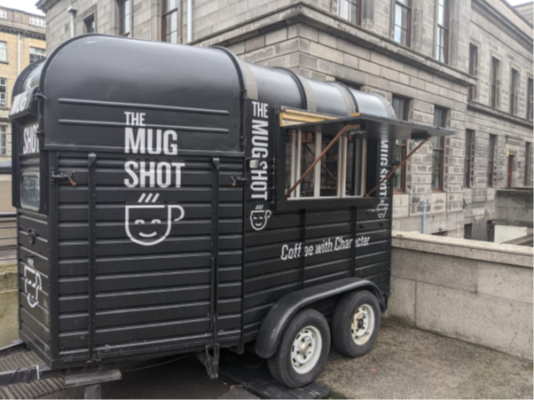Study visit with PACE – giving people a second chance through social projects

On 23 November 2021, we held a virtual study visit with PACE (Prevention, Accommodation, Community, Enterprise), a voluntary sector organisation in Dublin, Ireland helping people with prior convictions safely re-enter society and employment. PACE was founded 52 years ago and provides community-based services around prevention, accommodation, training, and social enterprise. By bringing positive change to people’s lives, they seek to help prevent further harm in the community.
This study visit was an opportunity to hear about life-changing stories from people we advocate for, but oftentimes don’t have the chance to see or hear from directly. Situations that ultimately breathe life into the European Pillar of Social Rights and have a positive impact through greater access to equal opportunities, employment, housing and social services, for example. It was important to hear about their experiences, particularly ahead of the launch of the European Commission’s Action Plan on the Social Economy.
Accommodation services
During the study visit, we first heard about PACE Accommodation Services, which provide people with transitional housing after prison with the view to assisting people to find long-term accommodation. In 2021, PACE continued to work through the disruptions of COVID-19 and received 62 referrals at their 24-hour accommodation service. We heard how staff work on a range of complex issues, such as addiction, trauma, and mental health, as well as the barriers that are encountered when trying to access services and long-term housing due to discrimination and limited availability.
Social enterprise
We also heard from PACE Social Enterprise, which creates jobs in handcrafting and horticulture to prepare people to progress into mainstream work. One of the testimonies provided was from a person who was employed as a Social Enterprise Coordinator at PACE, and the opportunities they now have by working with people at PACE, many of whom have addiction problems.
We also heard about the Mug Shot, a PACE social enterprise that provides ‘coffee with character’ and creates barista jobs for people who have experienced prison or probation. We heard from one woman who had received training through PACE to become a qualified barista. What was important to her was the level of trust developed between herself and PACE, and you could hear her smile while she spoke. For her, “Everything’s possible once you put your mind to it. Look at me, going into Mug Shot, not knowing what to do. Now I’m making coffee, one coffee at a time, every day.”
These stories were humbling and show how invaluable social initiatives are when it comes to bringing real-life change to people, in more ways than one. This is why we want to see the 20 principles of the European Pillar of Social Rights grow from words to actions that can reach all people across Europe, so that anyone and everyone can get a fair and decent chance at life.













































